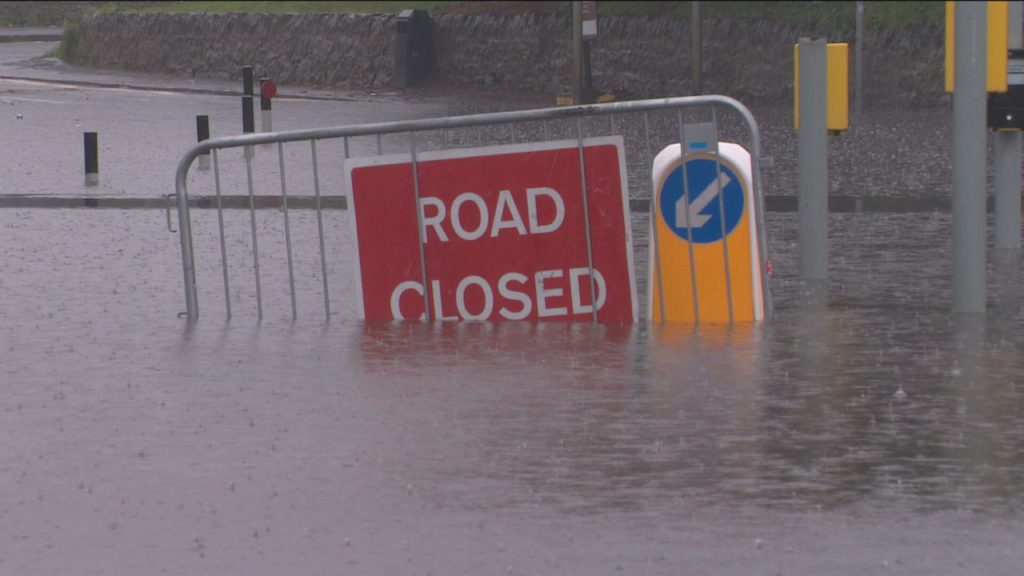To state the bleeding obvious, climate change does not respect borders.
Rising sea levels are predicted to hit Glasgow and Edinburgh, just as much as they’ll hit London and Cardiff.
We’re all expected to get warmer. Under a high emission scenario, by 2070, summer days will be between 1.1c and 5.8c hotter in central England, and 0.6C and 4.8C hotter in central Scotland.
Climate change is the one issue above all where the common threats point towards a joint response. A new report in Scotland this week has once again repeated the need for us to do so.
Published by the Scottish Fiscal Commission, Scotland’s independent economic forecaster, the paper seeks to set out the impact on Scotland’s public finances associated with climate change. It looks at what’s needed if the Scottish Government is to hit its target to be net zero (where the country is climate neutral) by 2045.
In short, a lot. The SFC says an extra £35 billion needs to be found from the public funds in Scotland on buildings, transport and forestry if we’re to hit the mythical net zero figure in time – or over £1bn a year, every year. The SFC says spending per head in Scotland will need to be higher than in the UK because of our land mass: we have 70% of the UK’s peatlands and about half its trees.
How likely is this? Even under the best-case scenario, the SFC concludes it will be “difficult” for Scotland to hit its interim target of a 75% greenhouse gas reduction target by 2030. Prof Graeme Roy, the SFC’s chairman, puts it bluntly: “The government will need to spend more in order to meet that. If they don’t spend more it won’t be met.”
To cut to the chase, neither Scotland nor the UK as a whole has much chance of meeting its 2030 or 2045 or 2050 targets on climate change unless we see the UK government and the devolved nations working together on a shared plan.
Scotland, of course, is run by two governments. With the UK Government setting the overall financial envelope, and responsible for many key decisions, the SFC concludes unsurprisingly that the two need to work better together. “The UK and Scottish Governments face a common challenge in climate change, their responses are interlinked and will impact each other,” the report concludes. “Clear plans and a coordinated approach by the two governments can ease risks around the transition to a net zero and well adapted UK.”
This is a drum that OSF has been banging for some time. Two years ago, we proposed the creation of a new UK wide Agency on Climate Cooperation, involving all the devolved governments and London, which coordinated investment on climate mitigation and the energy transition. We proposed that a new long-term plan, extending to 2045, be agreed by convening regular “COP UK” summits.
The plan by Labour to create a new national energy company – GB Energy – could be the model for this joint working, though the detail remains to be fleshed out. What’s abundantly clear from the SFC’s report this week is that the effort required for the UK to become a net zero nation is so vast it requires a joint plan, backed by national investment.
Climate change isn’t an issue that acknowledges borders – and nor should our response to it be either.










